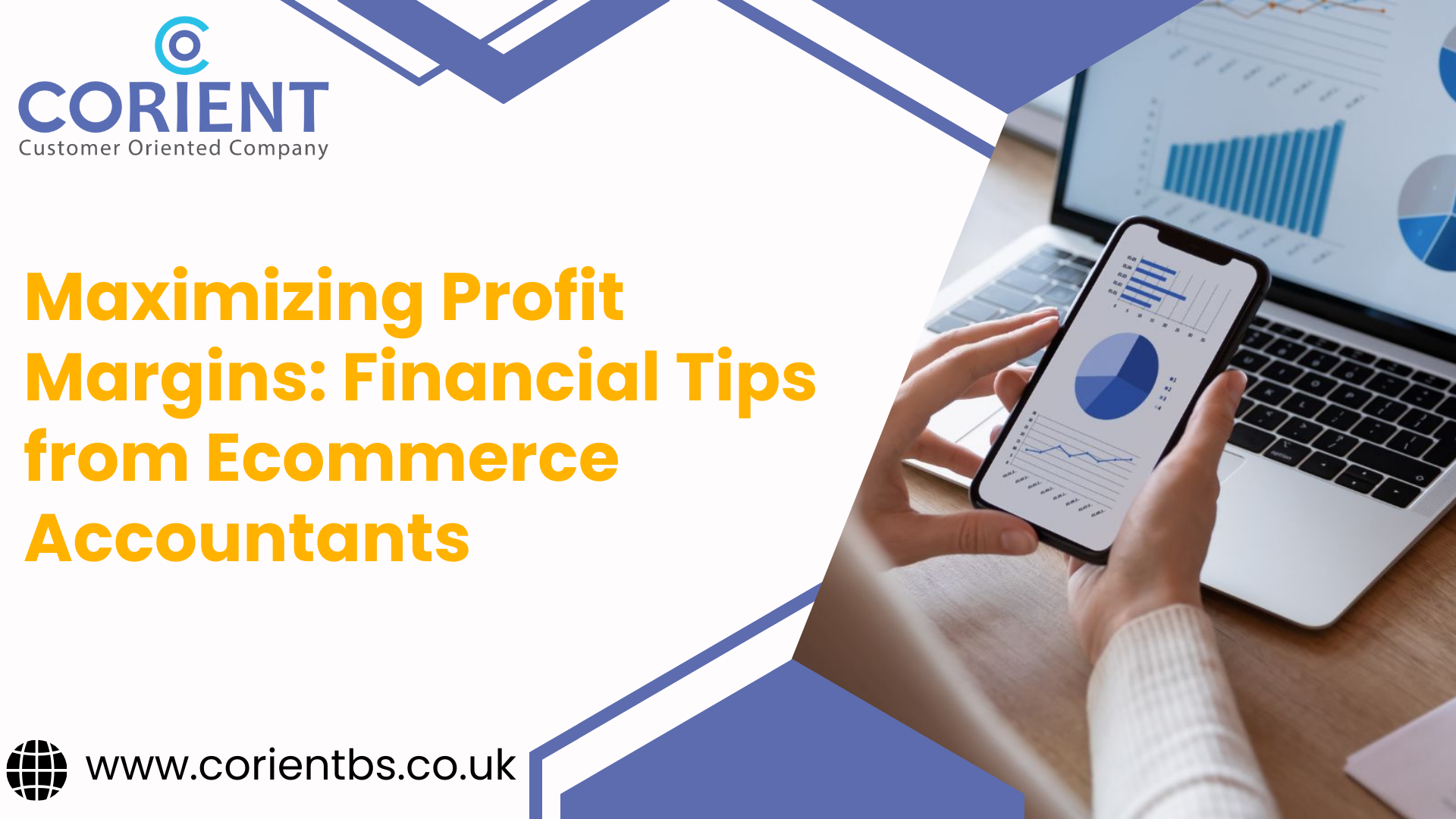In the bustling world of ecommerce, maximizing profit margins is vital for success. As competition intensifies and operating costs rise, businesses need effective strategies to boost their profitability. E-commerce accountants offer specialized financial advice tailored to the unique challenges of online retail. This article will explore how these experts help optimize profit margins and ensure long-term growth.
Understanding Profit Margins and Their Importance
Profit margins reflect the percentage of revenue that remains after covering all expenses. This metric provides insight into how well a business turns sales into profit. Understanding and improving profit margins are essential for thriving in the competitive ecommerce sector.
The Essential Role of Ecommerce Accountants
An ecommerce accountant specializes in addressing the financial intricacies specific to online businesses. Their role goes beyond standard accounting practices, focusing on areas crucial for profitability. Here’s how ecommerce accountants impact your bottom line:
- Inventory Management: Efficient inventory management ensures you have the right stock levels to meet demand without overspending. Overstocking ties up capital, while understocking leads to lost sales. Ecommerce accountants analyze inventory turnover and adjust stock levels to optimize cash flow.
- Cost of Goods Sold (COGS): Accurate COGS calculations reveal the true cost of producing your products, including materials and labor. By identifying cost-saving opportunities, ecommerce accountants help enhance your profit margins.
- Expense Tracking: Keeping a close eye on operating expenses helps pinpoint areas where you can cut costs. Ecommerce accountants track all expenses, from shipping and packaging to marketing and transaction fees, ensuring you do not overspend.
Effective Financial Forecasting and Budgeting
Financial forecasting and budgeting are crucial for scaling your ecommerce business. Ecommerce accountants use historical data and market trends to project future revenues and expenses, aiding in realistic budget creation and strategic planning.
Forecasting for the Future
- Revenue Projections: Accurate revenue forecasts, based on past sales and market conditions, guide inventory needs, marketing expenses, and growth strategies.
- Expense Predictions: Predicting future expenses, including fluctuating costs and seasonal variations, prepares your business for financial challenges.
Budget Management
- Creating a Budget: A well-crafted budget supports business goals while controlling costs. Ecommerce accountants help develop a budget that aligns with your growth objectives.
- Tracking Variances: Regularly comparing actual performance against your budget helps identify deviations and make necessary adjustments.
Optimizing Cash Flow
Cash flow management is critical for maintaining liquidity and supporting growth. Ecommerce accountants monitor cash flow to ensure you have sufficient working capital for daily operations and future opportunities.
Forecasting Cash Flow
- Short-Term Cash Flow: Forecasting short-term cash flow helps manage daily expenses and avoid liquidity issues. Accountants use tools to project cash flow based on sales cycles and payment terms.
- Long-Term Planning: Long-term cash flow planning prepares you for significant investments or expansions by analyzing trends and preparing for seasonal variations.
Improving Cash Flow
- Accounts Receivable Management: Accelerating receivables, such as by offering early payment discounts, improves cash flow.
- Managing Payables: Timely payment of payables and negotiating favorable terms with suppliers help maintain a healthy cash flow.
Ensuring Tax Efficiency and Compliance
Tax efficiency and compliance are crucial for protecting profitability. Ecommerce businesses often face complex tax regulations. Ecommerce accountants ensure compliance while optimizing tax liabilities.
Sales Tax Management
- Collection and Filing: Accountants help determine where you have a sales tax nexus and ensure correct sales tax collection and timely filing.
VAT and International Taxes
- Navigating VAT: For international sales, managing VAT can be complex. Ecommerce accountants assist with VAT regulations and filing requirements across different countries.
- International Compliance: They stay updated on global tax regulations to guide your business through complex scenarios and avoid legal issues.
Leveraging Data for Informed Decisions
Data-driven decisions are crucial for improving profit margins. Ecommerce accountant analyze financial data to provide insights that guide strategic choices.
Analyzing Financial Performance
- Profitability Analysis: By examining profit margins and cost structures, accountants help identify ways to enhance profitability.
- Trend Analysis: Analyzing financial trends helps understand market dynamics and make informed decisions about pricing, marketing, and product offerings.
Tracking Key Performance Indicators (KPIs)
- Monitoring KPIs: Ecommerce accountants help identify and track crucial KPIs, such as gross margin and average order value.
- Benchmarking: Comparing your KPIs against industry benchmarks provides insights into your performance relative to competitors.
Managing Risks and Preventing Fraud
As ecommerce businesses grow, the risk of financial mismanagement and fraud increases. Ecommerce accountants implement measures to manage risks and prevent fraud.
Fraud Prevention
- Monitoring Transactions: Regular monitoring of financial transactions helps detect and prevent fraudulent activities.
- Internal Controls: Strong internal controls reduce the risk of fraud and financial errors.
Risk Management
- Diversifying Revenue Streams: Diversification reduces dependence on a single revenue source, mitigating financial risks.
- Insurance and Reserves: Adequate insurance and cash reserves help manage unexpected financial challenges.
Implementing Cost Control Measures
Effective cost control is crucial for improving profit margins. Ecommerce accountants help implement cost-saving measures across various aspects of your business.
Supplier Negotiations
- Negotiating Terms: Accountants assist in negotiating better terms with suppliers, such as bulk discounts or extended payment terms.
- Finding Alternatives: Identifying more cost-effective suppliers can reduce costs without compromising quality.
Operational Efficiency
- Streamlining Operations: Improving operational efficiency through process optimization and automation reduces costs and enhances profitability.
- Technology Investments: Investing in technology that improves efficiency and accuracy can result in long-term cost savings.
Conclusion
Maximizing profit margins is essential for the success of an ecommerce business. Ecommerce accountants are key players in boosting profitability through expert financial guidance. They provide support in areas such as inventory management, cost control, tax compliance, and risk management, which are critical for sustainable growth. Additionally, integrating payroll outsourcing can further streamline operations and reduce costs. By leveraging the expertise of ecommerce accountants and outsourcing payroll, you can make informed decisions, enhance financial performance, and achieve long-term success in the competitive online marketplace. Investing in these services is a strategic move toward optimizing your business’s profitability and supporting future growth.


